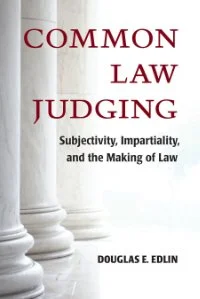By Barbara O'Brien & Catherine M. Grosso,
Race has long had a pernicious role in how juries are assembled in the United States. Racism—intentional, implicit, and structural—has produced disparities in how jury venires are selected, whom the court excuses for cause, and how lawyers exercise their peremptory strikes. We are, however, at a moment of reform in the United States. We see courts, legislatures, and citizens looking for opportunities to make our criminal legal system fairer.1 One aspect of the system receiving attention is jury selection, specifically race discrimination in the selection process.2 Efforts to counter discrimination range in scope from creating commissions to study the issue, to implementing rules to address Batson’s shortcomings, to outright abolishing the use of peremptory strikes.3 Much of the research on racial discrimination in jury selection has focused on lawyers, particularly their use of peremptory strikes. But the process that produces racial disparities involves multiple steps and players. Judges, in particular, play a vital role in ensuring that voir dire is conducted in a way that produces a diverse and competent jury. Fortunately, significant research on best practices in jury selection provides practical guidance to judges overseeing the jury selection process. To demonstrate how these best practices play out in the real world, this article examines two high-profile cases in light of what researchers have learned about maximizing the effectiveness of voir dire and, in particular, minimizing racial bias in jury selection. We take advantage of the live broadcasting of jury selection in two notorious cases during these times of crises and change to look closely at ways courts can mitigate racial bias in jury selection and, in the process, further the educational and information-gathering objectives of voir dire.5 In Part I, we review the research on practices that can enhance the effectiveness of voir dire and counter racial bias in jury selection, with a particular focus on the role of judges and on recent efforts to reform jury selection in several states. In doing so, we broaden the focus beyond how lawyers’ behavior in exercising peremptory strikes contributes to racial discrimination to the role of judges. In Part II, we present a brief overview of the main actors, as well as the legal and social context for our two cases: the prosecution of Derek Chauvin in Minneapolis for killing George Floyd, and the prosecution of Travis McMichael, Greg McMichael, and William Bryan in Georgia for killing Ahmaud Arbery. In Part III, we draw on that research to examine the jury selection processes in the Chauvin and McMichael/Bryan cases. We compare the processes by which those juries were selected and the judges’ approaches to voir dire by identifying attributes or initiatives that render voir dire more or less effective.
98 Chi.-Kent L. Rev. 111 (2024), 25p.






